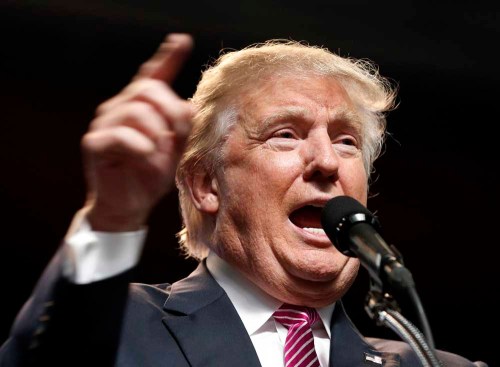Our view | Foreign trade policy relies on hope
Published 5:00 am Thursday, August 15, 2019

- President Donald Trump
The initial news that the Chinese government would suspend all imports of U.S. agricultural goods hit farmers like a lightning bolt.
As recently as two years ago, U.S. farmers sold nearly $20 billion in crops to China. Since President Donald Trump took office, exports to that country have dropped precipitously.
But the picture is far more nuanced than it may first appear. Reports indicate that not all U.S. ag exports to China will be halted. Which commodities are impacted is still being sorted out.
As we have stated in this column many times, this is just one more signal that the U.S. and China need to get their trade acts together, and the sooner the better.
In the meantime, there are lessons to be learned.
The Trump administration should resist starting trade disputes with several countries at once. So far, the president has gone after Mexico, Canada, Japan, South Korea, Australia, New Zealand, Peru, Singapore, Vietnam, Malaysia, India, Iran, Brunei and Chile by canceling or threatening to cancel various agreements.
Did we leave any out? Possibly, but the point is he cannot expect to get new trade agreements with everyone. He is especially unlikely to get them before the next election. The other countries know that and are taking full advantage.
Leaders of nations, such as China, have too many options, and they view issues through the lens of decades and even centuries, not election cycles.
At the same time, countries such as Russia, New Zealand, Australia, Ukraine, the European Union, Turkey and others produce many of the same crops as U.S. farmers and would love to take away those customers.
The trade wars also threaten to negate all of the hard work U.S. farmers put into cultivating overseas customers in such places as China and Japan.
Trump also has come up short in getting updated trade deals through Congress. It seems like half of Congress is running against him for the Democratic nomination for the presidency, so the likelihood of them approving a trade deal that would make him look good to voters is slim. It could happen — we hope it does — but it’s unlikely.
Most importantly, though, the Trump administration needs to remember that U.S. agriculture depends on trade. Especially in the West, farmers, ranchers, dairy operators, nut growers, orchardists and others produce crops for the overseas market. If that market continues to shrink, the price reverberations will be felt in the ag economy and the U.S. economy at large.
They already are. The prices of corn, wheat, soybeans, milk, beef and other commodities have been struggling in recent years, and no amount of subsidy checks from the federal government can make up for the long-term damage. The Trump administration needs not just a trade deal with China but with the other nations he has alienated. And the Congress he has alienated needs to approve them.
We’re hoping for progress on all of the trade fronts. It’s unlikely, but hope is all we have right now.





